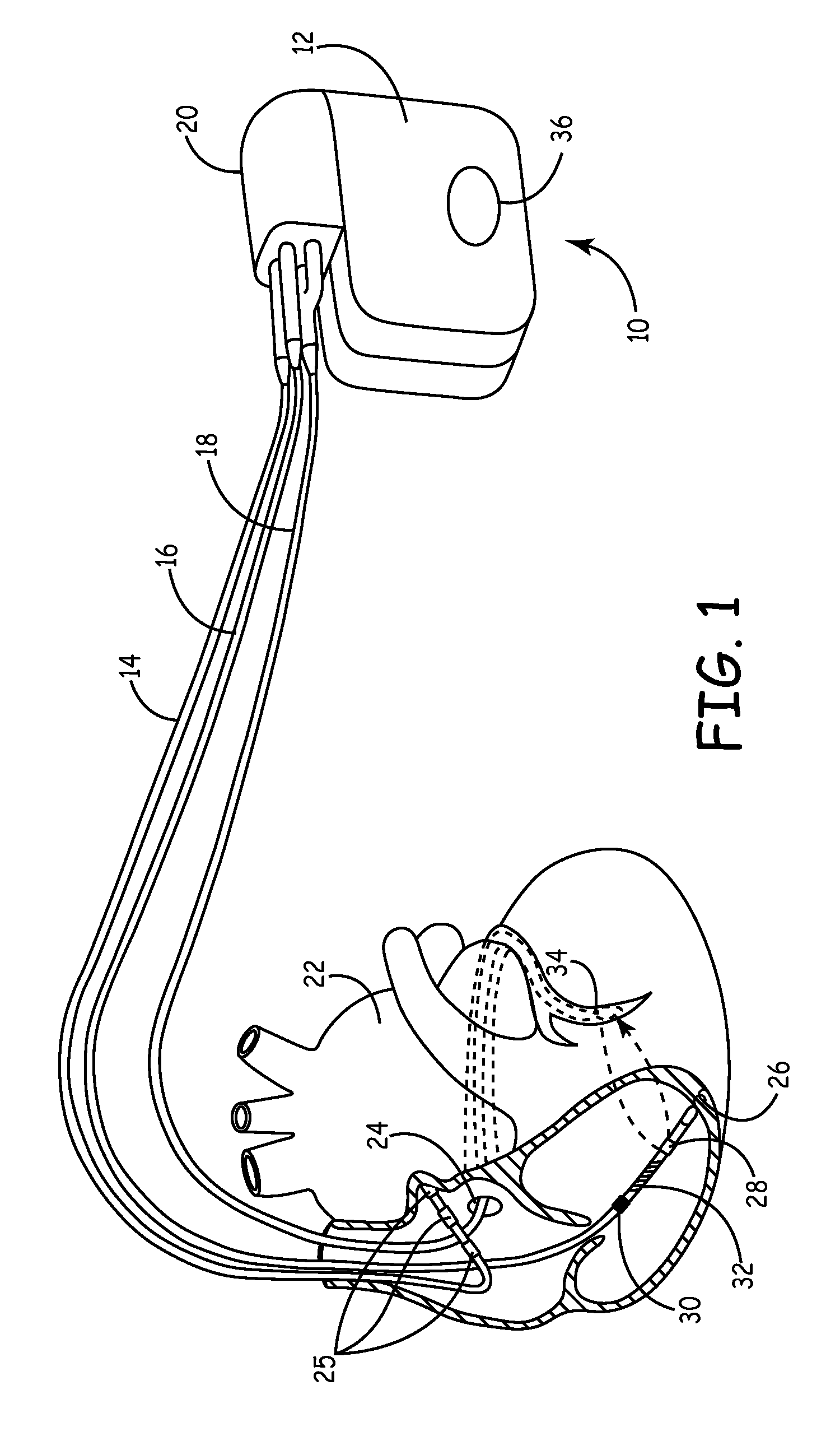Pressure and Impedance Based Discrimination of Hemodynamic Stability
a technology of impedance and discrimination, applied in the field of implantable medical devices, can solve the problems of ventricular fibrillation (vf) being potentially dangerous arrhythmias, vf may occur at a lower rate, and still be problemati
- Summary
- Abstract
- Description
- Claims
- Application Information
AI Technical Summary
Benefits of technology
Problems solved by technology
Method used
Image
Examples
Embodiment Construction
[0023]The present disclosure provides embodiments of IMDs that increase the sensitivity and specificity of ventricular tachyarrhythmia event (VT / VF) detection by utilizing a combination of sensed ventricular pressure data and sensed impedance data to determine the hemodynamic stability of a rhythm. The hemodynamic stability in turn is utilized to determine which rhythms require aggressive therapy (i.e., high energy defibrillation) and which rhythms require less aggressive therapies (e.g., anti-tachy pacing (ATP)) or do not require therapy at all.
[0024]The IMD determines a phase relationship between ventricular pressure and cardiac impedance. The phase relationship provides an accurate and readily discernable indication of hemodynamic stability. During a normal cardiac contraction, the left ventricle (LV) fills with blood and expands in volume. During this time, LV pressure increases until reaching a maximum. Conversely, as the volume of blood in the LV increases, the measured impeda...
PUM
 Login to View More
Login to View More Abstract
Description
Claims
Application Information
 Login to View More
Login to View More - Generate Ideas
- Intellectual Property
- Life Sciences
- Materials
- Tech Scout
- Unparalleled Data Quality
- Higher Quality Content
- 60% Fewer Hallucinations
Browse by: Latest US Patents, China's latest patents, Technical Efficacy Thesaurus, Application Domain, Technology Topic, Popular Technical Reports.
© 2025 PatSnap. All rights reserved.Legal|Privacy policy|Modern Slavery Act Transparency Statement|Sitemap|About US| Contact US: help@patsnap.com



